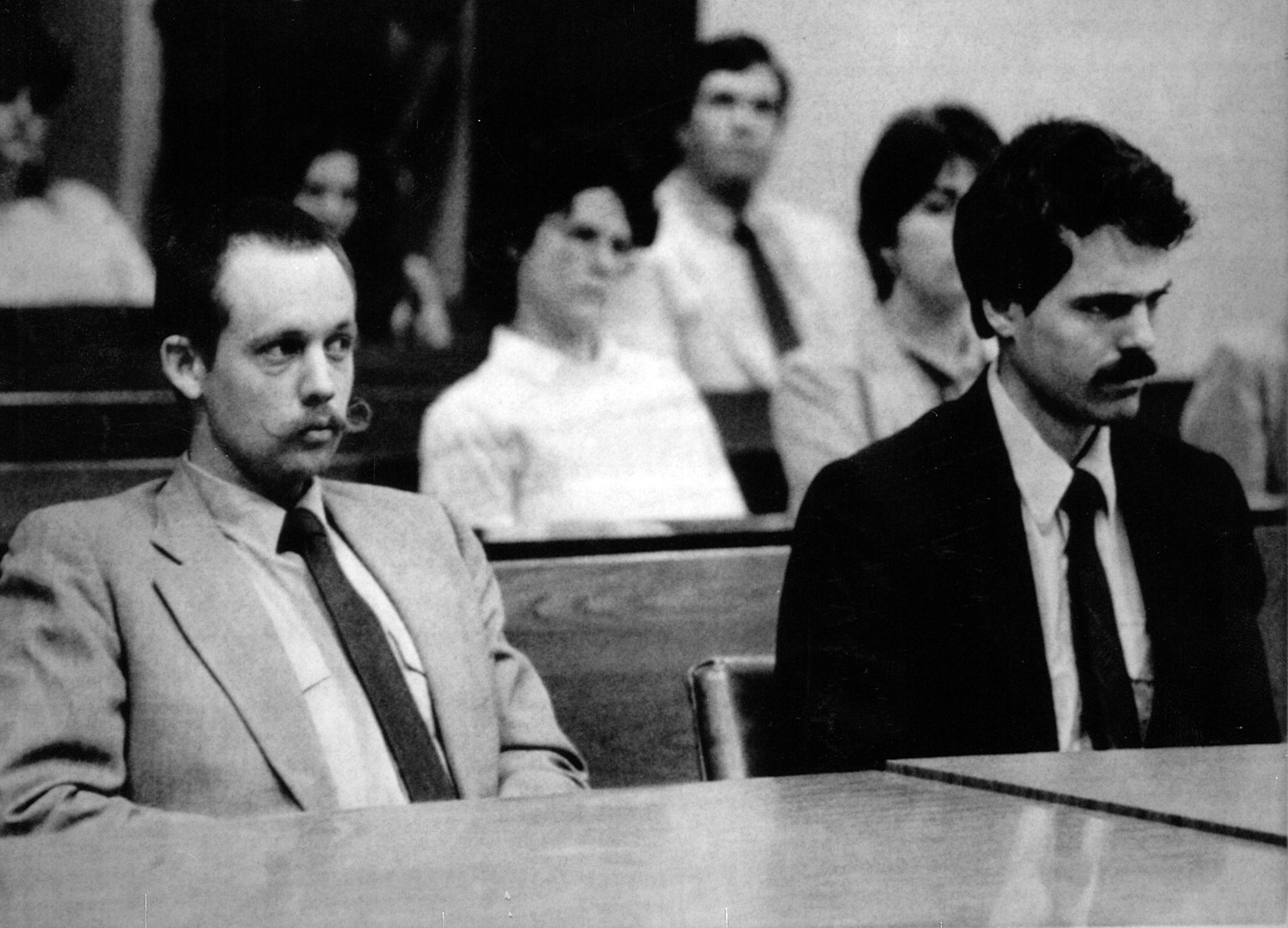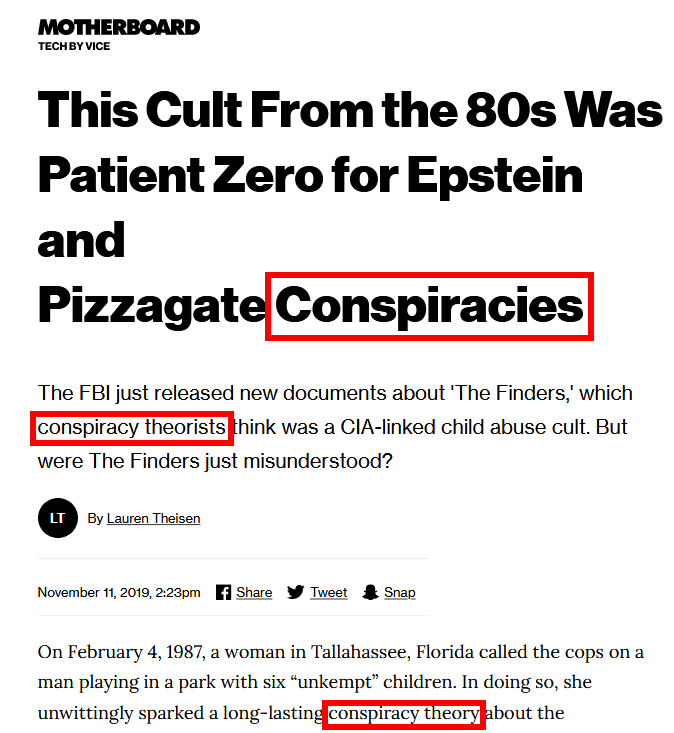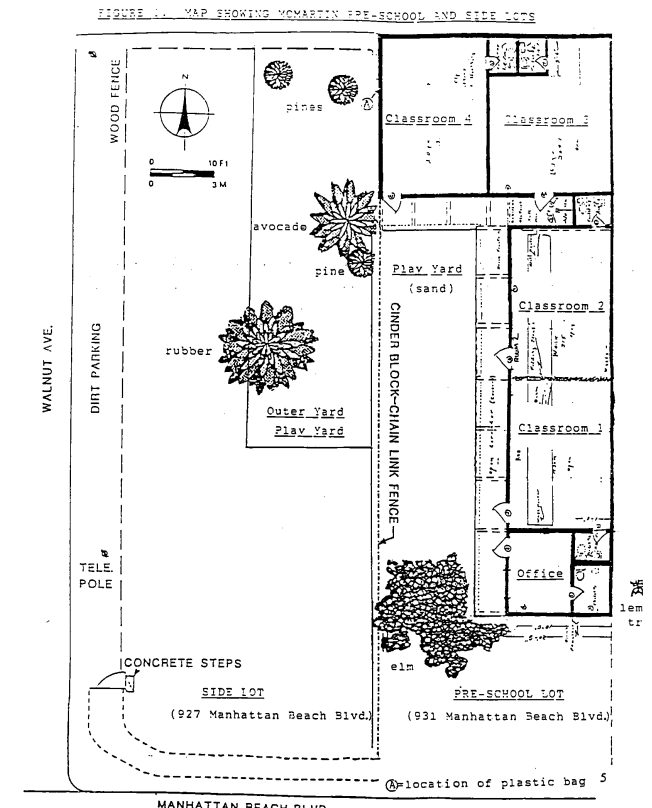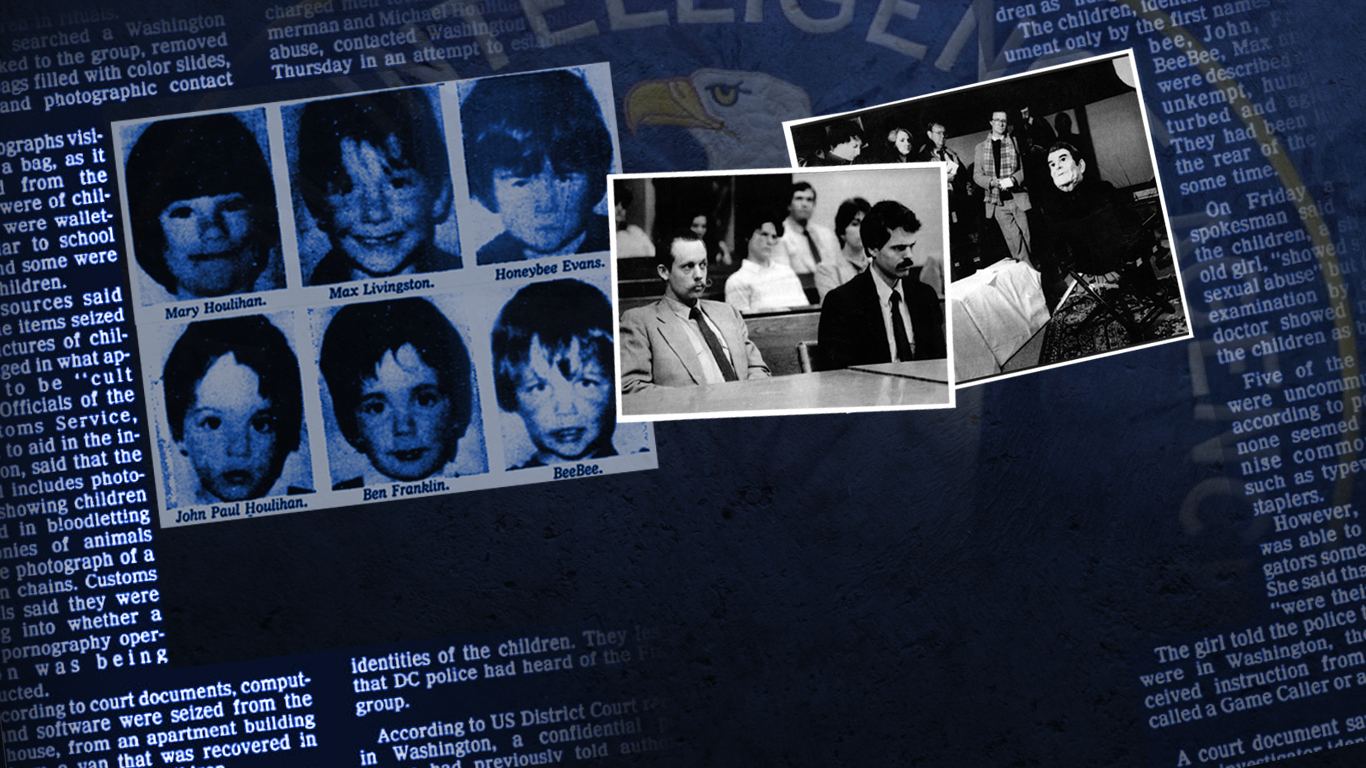WASHINGTON — In February 1987, an anonymous phone tip was called into the Tallahassee police department reporting that six children were dirty, hungry, and acting like animals in the custody of two well-dressed men in a Tallahassee, Florida park. That phone call would kick off the Finders scandal: a series of events and multiple investigations even more bizarre than the initial report.
The trail would ultimately lead to allegations of a cult involved in ritual abuse, an international child-trafficking ring, evidence of child abuse confirmed and later denied, and ties with the CIA, which was alleged to have interfered in the case. No one was ever prosecuted in the wake of the initial 1987 investigation or a 1993 inquiry into the allegations of CIA involvement: official denials were maintained, and authorities stated that no evidence of criminal activity was ever found. However, documents that have emerged over time beg significant questions as to the validity of the official narrative.
In contrast with other historical human trafficking rings covered in the independent press, including those I have previously discussed, the Finders scandal presents as something of a phantom. This is in consequence of the lack of adult victims who have come forward, an absence of hard evidence viewable to the public, and an absence of extensive trials or convictions. Further impeding the willingness of most journalists to cover such a story were claims of ritualistic abuse that were hyped by corporate media at the time of the incident, as well as allegations of a CIA-led coverup that were less widely recognized by the legacy press.
The story is further complicated by the fact that it takes place in three basic stages: the initial 1987 investigation spread across multiple states and law enforcement agencies; a subsequent 1993 inquiry into allegations of a CIA coverup and interference in the 1987 investigation; and the emergence of Customs Service documents detailing new aspects of initial searches of Finders properties which was followed by the publication of hundreds of documents from both investigations to the FBI vault in 2019.
By initially sensationalizing the issue via the framing of the Finders as a satanic cult, the media profited from immediate shock value while permitting this very sensationalism to become the premise for dismissing other aspects of the story and Finders ties to the CIA to remain unexplored.
The 1987 Investigation
On February 4, 1987, two men dressed in suits and ties in the company of six bug-bitten, dirty, hungry children were arrested in Tallahassee, Florida, on charges of child abuse after a concerned citizen called local police. Initially, Tallahassee police were concerned that the children might have been kidnapped and were being trafficked across state lines. The U.S. Customs Service, the Washington Metropolitan Police Department (MPD), and the FBI became involved in the attempt to identify the two men based on suspicions of interstate criminal activity including the possibility of child pornography.
The story exploded on a national scale after investigators linked the pair, identified as Douglas Ammerman and Michael Houlihan (also referred to as Michael Holwell), with a Washington D.C.-based group known as the Finders, which authorities publicly referred to as a “cult.” Initially, Tallahassee police reported that at least two of the children showed signs of sexual abuse.
Houlihan and Ammerman first told police that they were transporting the children to a school for brilliant children in Mexico. However, this explanation as to the purpose of the children’s trip would change significantly, with Finders members later stating that the group were on an adventure in Florida. The Finders group was found to have multiple properties in Washington, D.C. and a farm in rural Madison County, Virginia. It also became clear that the Finders were highly skilled with early computer technology, which would become a major aspect of the case as it unfolded.

News reports across the country headlined allegations of ritual abuse for approximately six days after the initial arrests, before a tidal shift by both the media and authorities began on February 10. The New York Times reported on that day:
Local police officials announced here today that six children found last week in Florida had apparently not been kidnapped and that there was no evidence to show that the secretive group that has been raising them is a cult involved in child abuse. The statement from the Metropolitan Police Department conflicted with accounts from the police in Tallahassee, Fla., where the children were found, unwashed and hungry, last week. Officials there said this morning that at least two of the children had signs of sexual abuse.
As described by the Times and the Chicago Tribune, the children were placed in police protective custody after threats were received at the shelters where they had originally been housed. Eventually, the mothers of the children were reported to have been Finders members and the children were said to be transported by Houlihan and Ammerman with the full consent of their parents. Hence, suspicions of kidnapping and trafficking rapidly lost credibility, though issues of abuse remained. The original strong allegations of sexual abuse of at least two of the six children were eventually contradicted by Florida authorities.
In March 1987, Houlihan and Ammerman were released with charges dropped for lack of evidence, and all of the children were eventually returned to their mothers. The official and media consensus was that the entire issue was a miscommunication blown out of proportion, and that the Finders were simply a 1960’s-esque “alternative lifestyle community” with unusual education methods.
The 1993 inquiry into an Intelligence Community coverup
U.S. Customs Special Agent Ramon J. Martinez claimed in a memorandum that during his participation in the searches of two of the Finder’s properties in Washington he witnessed evidence of the Finders’ intent to traffick children and other potentially criminal acts. Martinez wrote that he was unable to review the evidence collected at the locations after multiple attempts to do so, and that he was eventually told by a third party at the MPD precinct that the Finders group had come under the protection of the CIA, which had interfered with the investigation by deeming the issue an “internal matter,” and had the case files labeled “Secret,” with no further action to be taken or evidence available for review. Clearly, Martinez’s account detailing what he witnessed presents a strong counter-narrative to the official story.
A man named Skip Clements allegedly communicated the U.S. Customs documents and other records to then-Florida Rep. Tom Lewis (R) and North Carolina Rep. Charlie Rose (D). Stemming in part from their protests, as well as the prospect of CBS’s 48 Hours producing a segment on the Finders story (which never aired), the Department of Justice announced it would investigate allegations of CIA interference in the 1987 investigation in late 1993. The previously mentioned congressmen claimed publicly that the Finders may have benefited from protection of the U.S. government agencies, with U.S.News & World Report writing in December 1993, (as the DOJ investigation was getting underway), that Lewis had asked:
Could our own government have something to do with this Finders organization and [have] turned their backs on these children? That’s what the evidence points to…. I can tell you that we’ve got a lot of people scrambling, and that wouldn’t be happening if there was nothing here.”
The DOJ’s investigation resulted in a verdict of no evidence of CIA interference and no evidence of criminal activity on the part of the Finders, and it represented the official and legal end of the story.
The 2019 publication of FBI Vault documents
Eventually, Customs documents including Ramon Martinez’s memo made their way onto the internet. The exact method by which this occurred remains murky, with the best copy of the documents being hosted by the website of now-deceased Ted Gunderson, who served as an FBI special agent in charge and head of the Los Angeles FBI.
I contacted Martinez in 2017 and confirmed that he authored the document and that it is genuine, but to date, he has otherwise refused to go on record to comment on the matter with me. Martinez has had limited communication with some other independent journalists, including Derrick Broze of the Conscious Resistance, who produced a documentary on the Finders case in 2019. I also described aspects of the Martinez memo and the Finders case as part of a report on alleged intelligence-tied child abuse scandals penned in August 2019 in the wake of Jeffrey Epstein’s death and renewed public interest in the overall subject matter.
Just months after Epstein’s death, in October 2019, the FBI began releasing hundreds of Finders investigation documents to their Vault. The publication sparked a storm of attention, but virtually no corporate press coverage aside from a piece by Vice, which framed any interest in the subject as a conspiracy theory.

On their face, the contents of the FBI Vault documents appear to contradict the allegations made by former Special Agent Martinez: they include statements from multiple officers involved in the investigation from various agencies to the effect that they experienced no overt interference in their work from the CIA. Yet, when one looks closely, the documents also corroborate significant aspects of Martinez’s allegations and substantiate questions regarding the Finders’ links with intelligence.
There is the admission that Isabelle Pettie, the wife of Finders leader Marion Pettie, worked for the CIA during the Cold-War era (Pettie also admitted that his son worked for the CIA-linked, Iran Contra-era Air America), and that it was her visas to North Korea, North Vietnam, Russia and elsewhere that had been approved by the State Department. Key documents from the MPD investigation are labeled secret, just as Martinez had claimed, which is bizarre on its face if we are to believe that the Finders were simply an odd “alternative living” commune.
These and other corroborating details add credibility to Martinez’s claims regarding having witnessed other documents that indicated international child trafficking, as well as his assertion that he was told that the case had been deemed a “CIA internal matter.”
The FBI’s Vault publication includes records from the preliminary Tallahassee police department investigation, the MPD investigation, heavily redacted records from the U.S. Customs Service, documents from the Washington Metro Field Office (WMFO) of the FBI, and other agencies, as well as the correspondence and documentation of the 1993 inquiry, mostly from the WMFO to FBI Headquarters. The documents are scattered throughout the three published sections in no coherent order, and are interspersed with news reports from the time ranging from the initial arrests and the child custody issue to the 1993 inquiry into CIA connections with and protection of the group.
Bizarrely, a map relating to the McMartin Preschool scandal is also included in the publication for no known reason, since at this time the cases are completely unrelated aside from both having contained allegations of satanic abuse. Regardless of the intent behind the document’s inclusion, it serves to further associate the Finders with the so-called “moral panic” scandals of the era, which I would argue distracts from the issue of intelligence ties to the case.

A fresh look
Before moving further into analysis of the available evidence, it’s important to recognize a number of problems we face in understanding the information published in the FBI’s Vault. First, a multitude of large, often critically placed redactions plague the documents, the most important of which are not labeled with privacy exemptions but are instead labeled “S,” presumably meaning that the information is classified as secret.
Another problem involves the fact that information requested by some agencies — especially during the 1993 preliminary inquiry into a CIA coverup — was not provided to the relevant investigating agencies. Then there is the phenomenon of information disappearing outright, including vanishing evidence and instances of records never having been kept, resulting in conflicting accounts of the existence of critical pieces of evidence.
This series will challenge both the sensationalism and the silence of establishment media surrounding the Finders narrative by examining the allegations made by the U.S. Customs documents in view of the FBI’s more recent Vault publications, which shed fresh light on the connections between the Finders and the U.S. intelligence apparatus.
Feature photo | Graphic by Antonio Cabrera
Elizabeth Vos is an independent journalist and MintPress News Contributor. Her work has appeared in many media outlets including Consortium News, where she co-hosts the CNLive! webcast.


